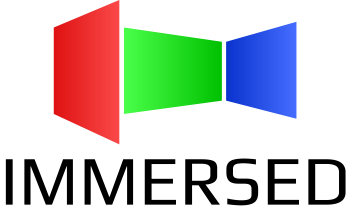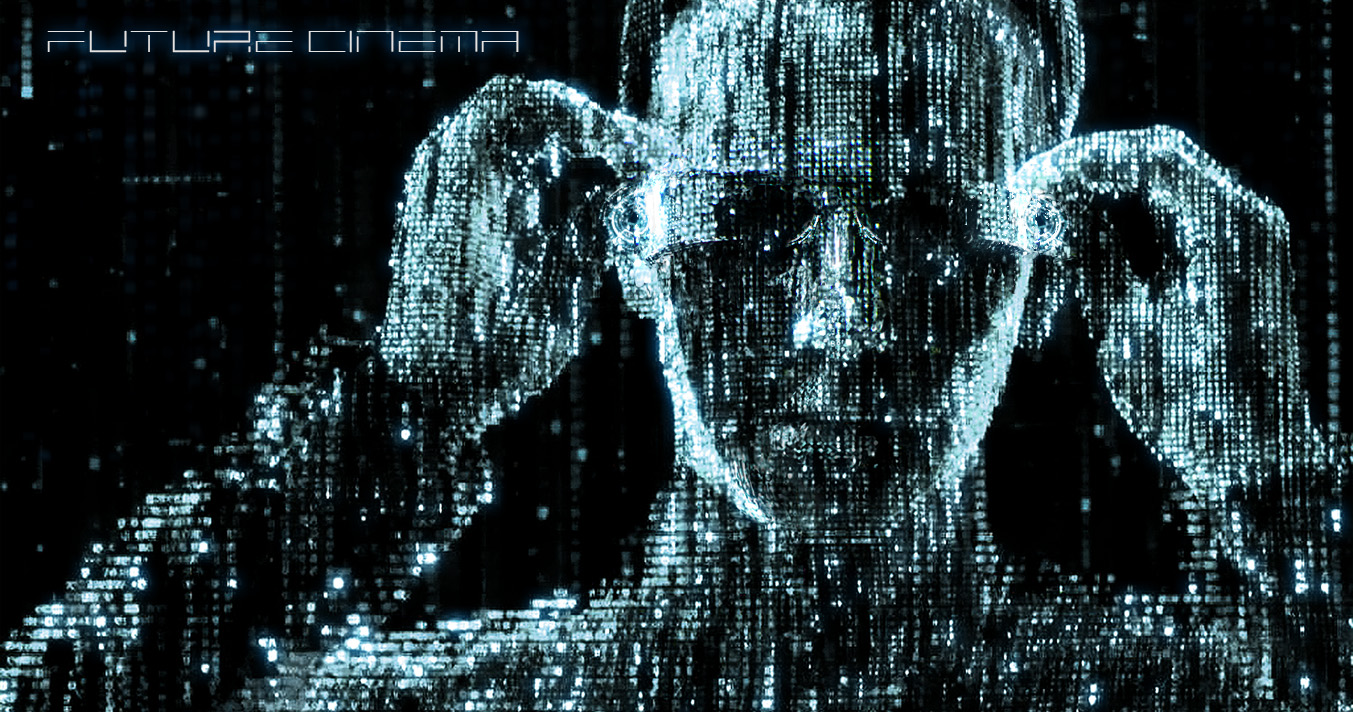Getting Immersed: The Man Behind The Matrix' Visual Effects
Ever wanted to have a peek inside the mind of a visual effects genius? We did, we got a chance, and here's what we asked John Gaeta, the man behind the visual effects of the Matrix trilogy.
We sat down with John Gaeta, the Creative Director of New Media and Experiences at Lucasfilm. Gaeta is best known for his work in the Matrix, where he designed and supervised many of the visual effects. He has won BAFTA and Academy awards for his work, and he is currently also working on a new movie called Jupiter Ascending.
John Gaeta will be speaking at the Immersed conference, which is an event hosted by the Immersive Technology Alliance on November 23-24 in Toronto. The main topics of the event are virtual and augmented reality.
Tom's Hardware: Why are you interested in speaking at the Immersed conference?
John Gaeta: I'm putting my support behind the Immersive Technology Alliance to help the independent-minded and the larger-scale groups try to create a community of sorts. I'm interested in all the positive communities that are coming together now in these spaces. Bringing people together is always the best way to begin a journey into a new area, and I think community building matters most.
I'm very interested in innovation and experimentation at the source. What I mean by that is, we all know that the greatest innovations of our time have always begun in really small indie formats by very motivated and super-inspired people. If one wants to have a contemporary understanding of where the energy is going in terms of innovation, you need to know what people want to create and what they are investing their limited resources, careers, and lives into.
Many people that come to VR could do many other things; they certainly could take a job at a large technology company, but they don't. They want to do something as an individual or as a group because they believe in it, and that's the kind of passion I've always been interested in.
TH: Are you disappointed that now, about fifteen years down the road, we're still nowhere close to a Matrix-type VR experience?
Get Tom's Hardware's best news and in-depth reviews, straight to your inbox.
JG: Disappointed? It's a hard word. I'm not surprised at all. I always look at it as there are two speeds that things could happen at, with the will, and with the realities of the market. Unfortunately, in this day and age, unless you have invented lighting in a bottle as a small group, you don't stand a chance.
The larger corporations become, the more public they become, and the more risk-averse they become, too. This doesn't mean that they don't believe in it; they are full of bright people who want to advocate from inside, and they form these interesting labs. In fact, there are spectacular labs in some of these larger companies.
But then there is the other side of the companies, the side that determines what to invest in. If VR was a market, as opposed to an experience, which is where my mind is, it definitely requires platform majors to build bridges. We are starting to see that happen, and that's one of the biggest surprises for all of us. We're seeing people starting to believe in large numbers, although that didn't happen until small upstarts started to actually proof it out. It's as much about what people experience as the sort of fetishistic hardware they hold in their hand as anything else.
TH: So, how long do you think it will be until we reach a Matrix-type of VR experience?
JG: Let's look at in in steps. I believe that we will see incredible progress across this coming decade. Note the first thing you have to do is to define that, and a Matrix-type VR isn't something we want. That film is a sort of dark tale of warning, and the reason why artists make these tales is to make people orient themselves so they can avoid these things.
In many respects, the people who made the Matrix, my colleagues and I, it's sort of a foundation for us. Today, it's early enough for us to try to do something that takes us down to a more optimistic and positive form of the Matrix. It should be one that inspires, that creates revolutionary insights about things that educate and expand the imagination further than it's been before.
I'm not interested in small-ball commercial regulatory minutia. I'd like to talk about destinations. You have to create a vision. We can find various visions in cinema and literature, but most of it seems to be in the realm of warning; but it doesn't all have to be dark. My thought is that inside of this decade that we will see -- as the communities of game and cinema technologies merge and the younger generation becomes involved -- we'll really see the interest rising.
It is still quite a ways for folks to understand how to deal with the out of body experience, and how to embrace and interact with digital content without haptic feedback. To me, today's haptic feedback seems like a very early, Victorian age of haptic feedback. We're going to have to get past that. Part of that has to do with the depth of immersion -- the belief that you're touching something that you're not, without tactile response.
There are various things that people want from blended and virtual reality. There are clearly people who want interaction, and that in itself is very compelling. It is also escapism -- the sublime presence in another world or universe.
Over the next decade, we will see a solid attempt to move universes from cinema or games into the VR space, and we will see if that is enough to grow the audience size large enough to make a compelling case for it to be considered a market. Once we have something like that, we have a foundation that many other applications can build on, such as the education industry where people gain great insight. To do that, however, there first has to be a platform to the mainstream, to mass media.
TH: What is your biggest fear of VR?
JG: VR and AR can be used as an additional form of sight, not only to expand on the existing world, but also to monitor users. Humans have that sight, and for education and engineering it clearly could spark a whole new generation of thinkers. If you loop that back to the Matrix, and give machines that sight -- then eventually, the machines will crush us.
TH: Let's hope it doesn't come to that, at least not in our lifetime.
JG: They are expensive to build -- it will take a while. My only concern is that they learn how to print themselves. If you make one super-machine that has self-preservation type of instincts, and it is capable of printing its own parts, it could just make a whole bunch of itself, by which point we won't have a lot to say about it.
We're heading into the unknown, it's impossible not to scratch the itch, it's just part of our intellectual evolution, and we're going to do it. A lot of the people who have that itch are genuinely good and bright-minded people who do not know what harm they can do with the things they can create. We need to constantly discuss and try to make it unattractive to go down the harmful road, but win the argument in an attractive way.
People are going to choose, and you can't necessarily write laws that stop people from going down the dark path. People will see that as a challenge, so you really need a compelling reason for people not to go down that path.
TH: Final thoughts?
JG: I see an awful lot of activity around hardware. Hardware, to what end, is my question. The reason why we aren't seeing remarkable works yet in VR is because folks haven't yet figured out how to approach human interface yet. Stop being just about the quality of the optics. I would like to see the conversation move to what is it that you're projecting onto the eyeballs, and how are you touching that? I would like to see these things more connected at the hip. We don't talk about goggles unless we talk about what the experience is going to be, and what we can do with it.
People keep saying that there's no purpose to VR/AR other than cheap marketing, and that's just a complete lack of imagination on all of our parts. If we don't want VR/AR to go down the route of these cheap 3D movies, and even to some extent what happened in the second round of 3D that we're passing through right now, if we don't want it to die that kind of death and take another ten years, we have to move to a more intellectual debate about what experience we get with what interface, and to what end.
*****
Tom's Hardware is a media sponsor for the Immersed conference. Stay tuned for more coverage and interviews with Immersed speakers ahead of the November 23-24 show.
If you wish to register, there's a temporary promotion code ("TomsHardwareImmersed") that will knock $100 off the registration cost. Primarily, Immersed will consist of industry folks, but there is a free public exhibition on Sunday afternoon, November 23.
In any case, space is limited, so register in advance if you want to claim a spot. The Immersed conference is running registration through the Eventbrite page.
Follow Niels Broekhuijsen @NBroekhuijsen. Follow us @tomshardware, on Facebook and on Google+.
Niels Broekhuijsen is a Contributing Writer for Tom's Hardware US. He reviews cases, water cooling and pc builds.
-
PraxGTI I imagine a technology that would allow me to "overclock" my brain for a couple of hours/days at a time during a VR experience where I could attend school and obtain a 4 year degree in a matter of hours in the real world. Time is our most valuable asset, if we can find a way to "trick" the brain into thinking more time is passing than it actually is then we could accelerate our learning and live many lifetimes in the one that we have.Reply



